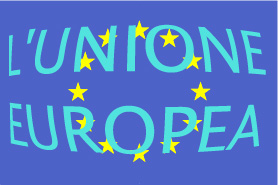Rimani aggiornato:
Iscriviti alla newsletter
The European integration process in the eyes of others: historical perspectives, 1952-1992
Sala Gandolfi, Palazzo Orsi Mangelli
Friday 11 e saturday 12 march 2011
In the current literature on the historiography of European integration, a very limited space is devoted to the external relations of the EC/EU. Notwithstanding the growing importance of the EU as a global actor, scholars have mainly focused their attention on the continental process of European unification. Far from answering the controversial question over the supposed existence or non-existence of a European foreign policy, this colloquium aims at fostering a reflection over the EU, its origins and evolution from the 1950s as seen from the perspective of non-EU countries and regions.
The goal is to promote the study of the international dimension of the EC/EU, the direct and indirect impact its common policies have had on a worldwide scale, as well as the link between its international self-representation and the more general discourse of identity.
The Conference seeks to touch upon the following themes:
- the national actors and the problems concerning the difficulties to provide the EC with Institutions which would allow the member States to define a common direction in the foreign policy field;
- the supranational actors and their contribution, so often neglected in historiography, to the debate over the opportunity to strengthen the external projection of the EU and the meaning of it: what kind of international actor should the EC/EU be? What kind of global governance should it promote?;
- the postcolonial heritage in EU external relations;
- the external implications of internal policies, such as those concerning trade and agriculture, development cooperation, environment, gender policy.
- Perceptions: how has the EU been perceived by the international community and how have these perceptions developed since 1957?
- Formal and informal relations between the EC/EU and the third-countries.
HEIRS is a postgraduate research network which, founded in the summer of 2004 by a group of doctoral students, works as an open network for all researchers who wish to contribute to foster the collaboration and interaction of postgraduate researchers across Europe with an interest in European integration history. As part of our activities, we collaborate with a broad range of partners. We work closely with the Paris-based RICHIE network and are represented at meetings of the EU Liaison Commitee of Historians.
Each year HEIRS invites doctoral or post-doctoral researchers to conceptualise and organise our annual conference. The point of these conferences is to allow for younger researchers to come together in an informal yet professional environment, to disseminate their research, and gain useful feedback from peers and more established academics.
The Seventh HEIRS Colloquium is the annual Conference that HEIRS organizes this year in Forlì, with the collaboration of the Jean Monnet Chair of Professor Giuliana Laschi, Europe Direct and Polo Scientifico of Forlì.
Conference organizer: Alessandra Bitumi (Woodrow Wilson International Center for Scholars)
Programme
[P]olicy
- [L]
Note legali - [T]ermini
d'uso - [C]ontatti
- [A]ccesskey -
Statistiche (riservate)
Copyright 2002 Punto Europa - Progettista -
mail: info@puntoeuropa.it
PuntoEuropa .it è sviluppato seguendo i più recenti
standard del W3 e nel rispetto dell'accessibilità
[Dettagli
su strategie e validazioni]






